I asked a hormone expert why my mother has been having vivid dreams during menopause — here's what she said
If you've been having nightmares during menopause. you are not alone
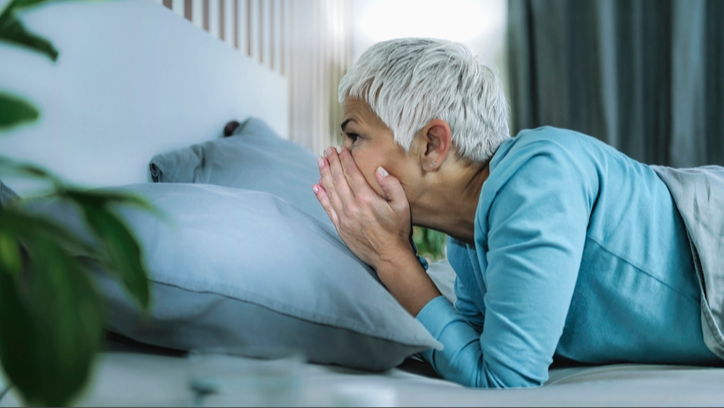
Here at Tom’s Guide our expert editors are committed to bringing you the best news, reviews and guides to help you stay informed and ahead of the curve!
You are now subscribed
Your newsletter sign-up was successful
Want to add more newsletters?

Daily (Mon-Sun)
Tom's Guide Daily
Sign up to get the latest updates on all of your favorite content! From cutting-edge tech news and the hottest streaming buzz to unbeatable deals on the best products and in-depth reviews, we’ve got you covered.

Weekly on Thursday
Tom's AI Guide
Be AI savvy with your weekly newsletter summing up all the biggest AI news you need to know. Plus, analysis from our AI editor and tips on how to use the latest AI tools!

Weekly on Friday
Tom's iGuide
Unlock the vast world of Apple news straight to your inbox. With coverage on everything from exciting product launches to essential software updates, this is your go-to source for the latest updates on all the best Apple content.

Weekly on Monday
Tom's Streaming Guide
Our weekly newsletter is expertly crafted to immerse you in the world of streaming. Stay updated on the latest releases and our top recommendations across your favorite streaming platforms.
Join the club
Get full access to premium articles, exclusive features and a growing list of member rewards.
When my mum started presenting symptoms of perimenopause, she didn't expect vivid dreams to be on the list of what to expect. Sleeping hot, mood swings and insomnia were all there, but weekly nightmares took her by surprise.
From hormonal changes to increased stress levels, there are many potential links between menopause and sleep problems.
While some people's dreams are frightening during this phase in life, other people's are action-packed, true to life or down-right weird.
And with yet another morning rolling by where she's complained of terrible dreams, I've decided to get to the bottom of it this Menopause Awareness Month .
So, I've reached out to author of The Hormone Makeover and founder of The BHRT Training Academy, Donna White, to find out what causes vivid dreams in menopause and what you can do to prevent them.
How does menopause affect sleep?
Poor sleep is one of the main symptoms of menopause with one third to half of all women aged 40 to 64 reporting sleep problems, according to research in the Sleep Medicine journal. And this is primarily due to hormonal changes that occur.
White says the four hormones at play here are estrogen, progesterone, melatonin and cortisol. While the first three sleep-regulating hormones decrease in perimenopause and menopause, the later stress-inducing hormone increases.
Get instant access to breaking news, the hottest reviews, great deals and helpful tips.
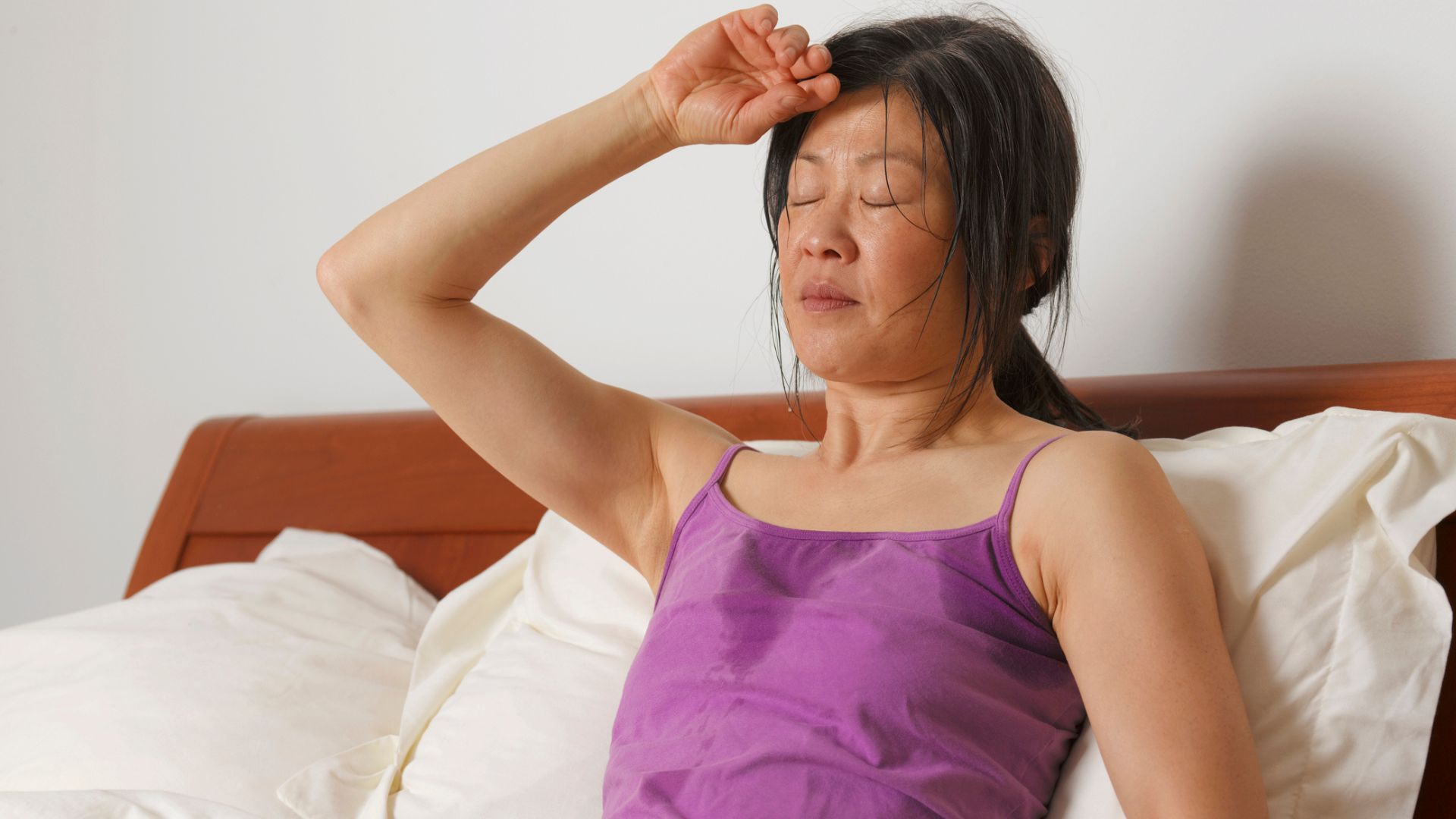
This hormonal fluctuation can "wreak havoc on sleep", according to White, making it hard fall and stay asleep, and cause night terrors and nightmares.
Add to the mix irritating nighttime hot flushes, urinary urgency and anxiety (all of which are symptoms of menopause) and its easy to see why menopausal people have such a tough time nodding off.
3 reasons menopause causes nightmares
1. Hormone changes
The drop in estrogen and progesterone inhibit the brain’s ability to maintain deep sleep. This means menopausal people have ‘shallower’ sleep, and more time in light and REM stages of sleep, aka the sleep stages where dreams occur.
These hormonal shifts don’t just change our sleep—they reshape how we experience and remember our dreams
"As hormones like estrogen and progesterone decline during menopause, the brain’s sleep architecture is disrupted — especially the balance between REM and deep sleep," White explains.
"That’s why so many women report vivid, emotional and sometimes unsettling dreams," she adds.
"These hormonal shifts don’t just change our sleep—they reshape how we experience and remember our dreams."
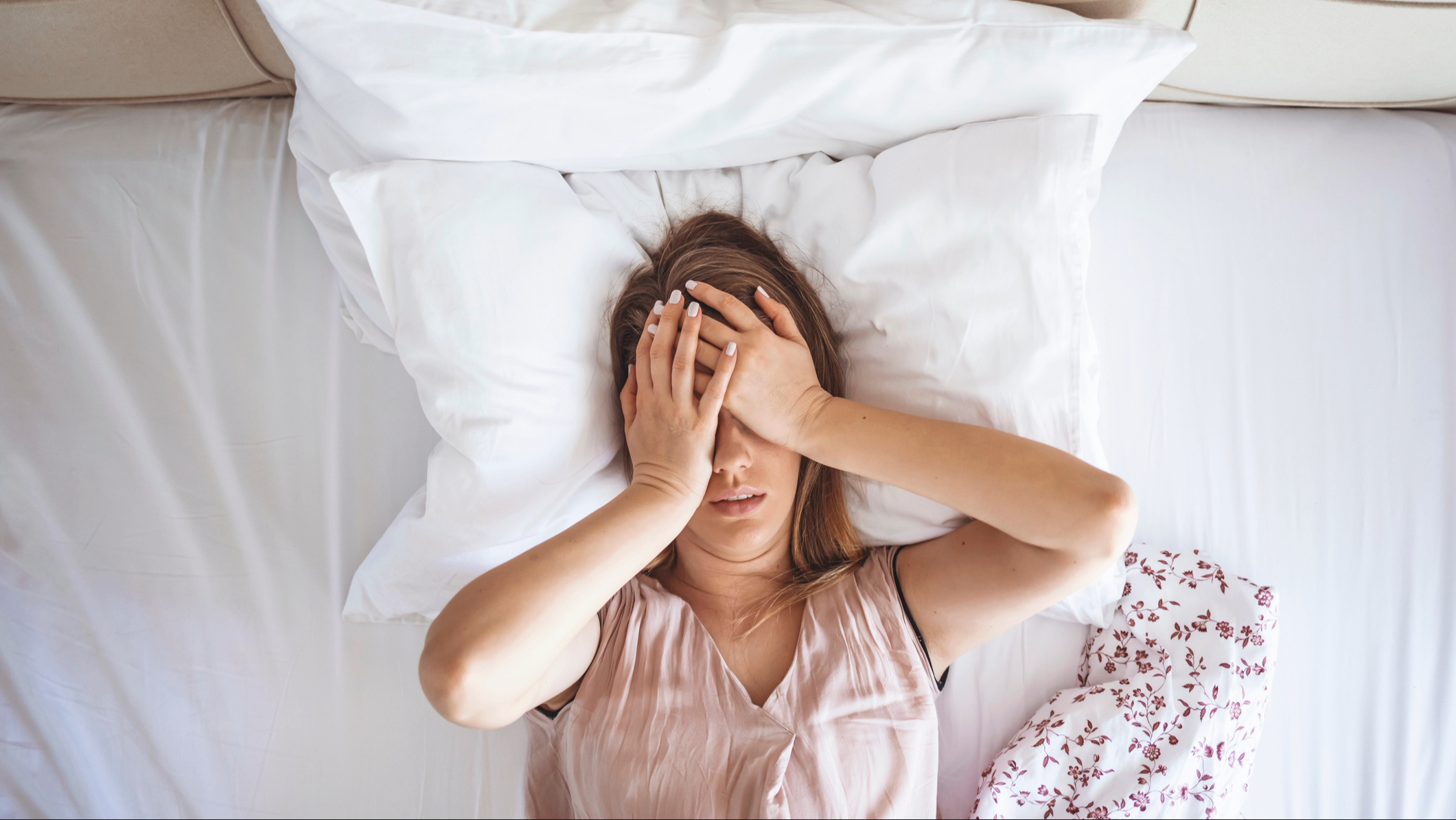
2. More sensitive emotions
The brain’s emotional control center, scientifically named the amygdala, becomes more sensitive during menopause, again due to hormonal fluctuations. This can cause dreams to become more intense and emotionally charged.
"The amygdala, a key brain region involved in processing emotions, is affected by declining estrogen levels during menopause," White explains.
"This hormonal change can lead to heightened emotional sensitivity, which may manifest in dreams as increased intensity or emotional content."
3. Anxiety and stress
Stress and anxiety — both of which are known to cause sleep troubles at any stage of life — are among the symptoms of perimenopause and menopause.
As estrogen levels decline and cortisol levels rise, dreams become life-like. .
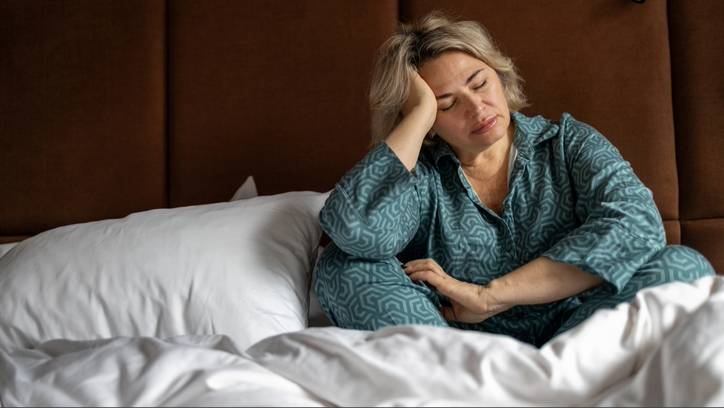
"Cortisol makes us feel awake and wired" and "increased cortisol levels can contribute to more intense and bizarre dreams," White explains.
This is because the increase in the stress hormone during menopause activates the sympathetic nervous system and, therefore, the body’s fight or flight response.
This physiological arousal can amplify the intensity and vividness of dreams
Do all perimenopausal and menopausal people experience vivid dreams?
Symptoms of perimenopause and menopause present themselves differently from person to person.
While many people report more vivid dreams during these stages, it's not a universal experience. Night sweats and hot flushes remain the most common menopausal sleep disturbance.
However, people who are more stressed or anxious before and during menopause are more likely to experience nightmares and vivid dreams when menopausal hormone shifts occur, due to their heightened emotional sensitivity.
Claire’s story of vivid dreams in perimenopause
My mum, Claire Davies, 48, has had trouble falling asleep and staying asleep until the sound of her alarm over the past year. While nighttime hot flushes are part of her sleep struggles, she's also been impacted by vivid, distressing dreams.
She experiences these dreams around three times a week and they usually involve someone chasing her or pinching one of her five (now adult) children, while she is unable to scream for help.
I expected to experience hot flushes during perimenopause, but I wasn't aware that my dreams would become so vivid and nightmare-ish too.
She tends to to wake up in a panic and struggles to fall back asleep.
"I used to be a great sleeper, but over the past year a good night's sleep is much harder to come by," Claire says.
"I'm often woken up by stressful dreams that seem so real in the moment."
"I can't put my finger on what triggers these dreams," she continues, "but I tend to feel more groggy the morning after they occur and my energy levels through the following day take a hit."
For Claire, this symptom of menopause was a surprise. "I expected to experience hot flushes during perimenopause, but I wasn't aware that my dreams would become so vivid and nightmare-ish too."
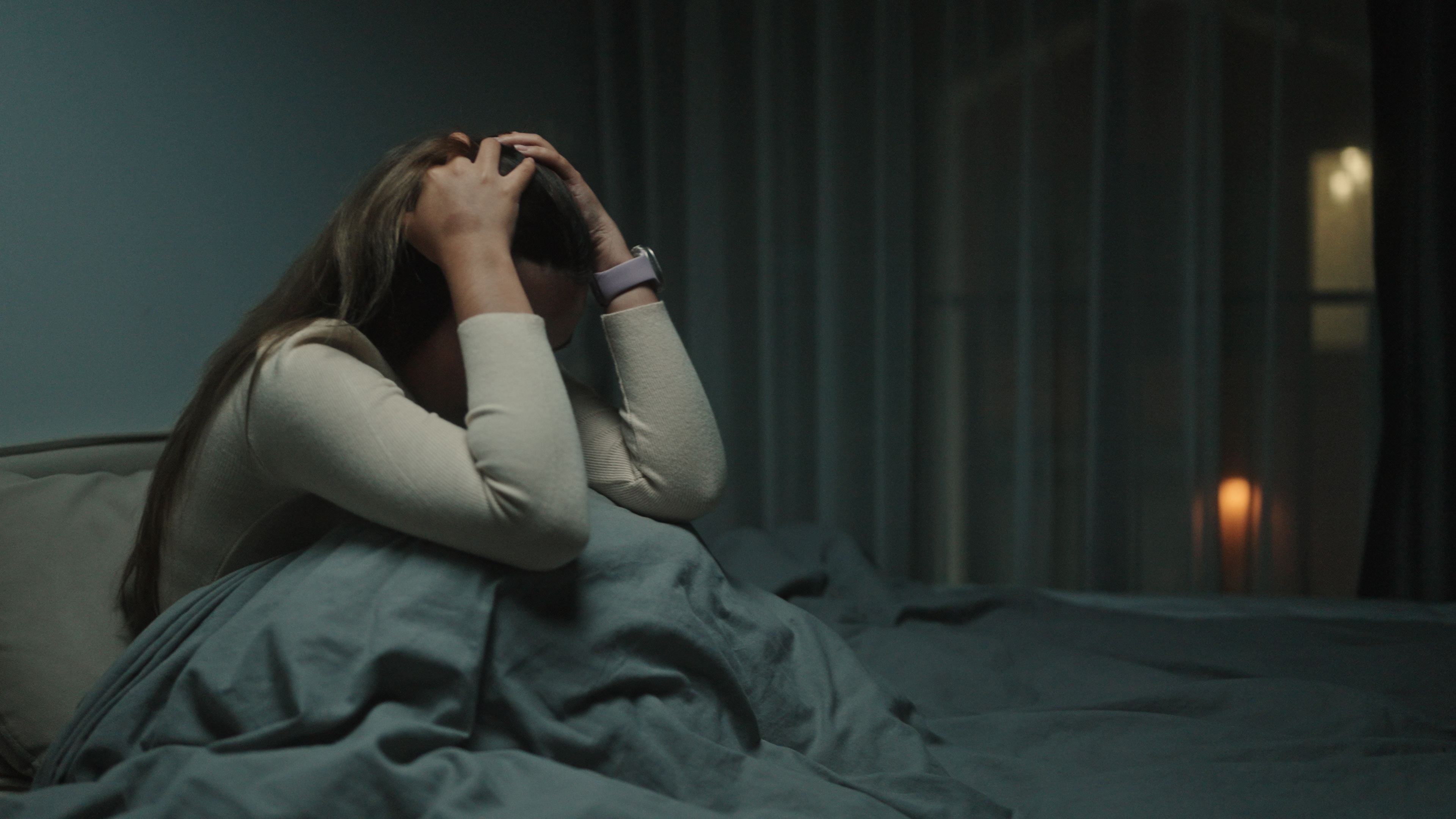
How to deal with vivid dreams in menopause
Invest in your sleep set up
With hot flushes being a main trait of menopause, a comfortable, cool sleep set up is essential to getting good quality rest.
As a circadian rhythm cue, temperature plays a key role in our ability to fall and stay asleep.
While many people cosy up at night, a cooler temperature is actually best for sleeping. The Oxford Academic Sleep journal suggests a bedroom temperature between 65 to 70 F (18 to 21 °C) for optimal ZZZs.
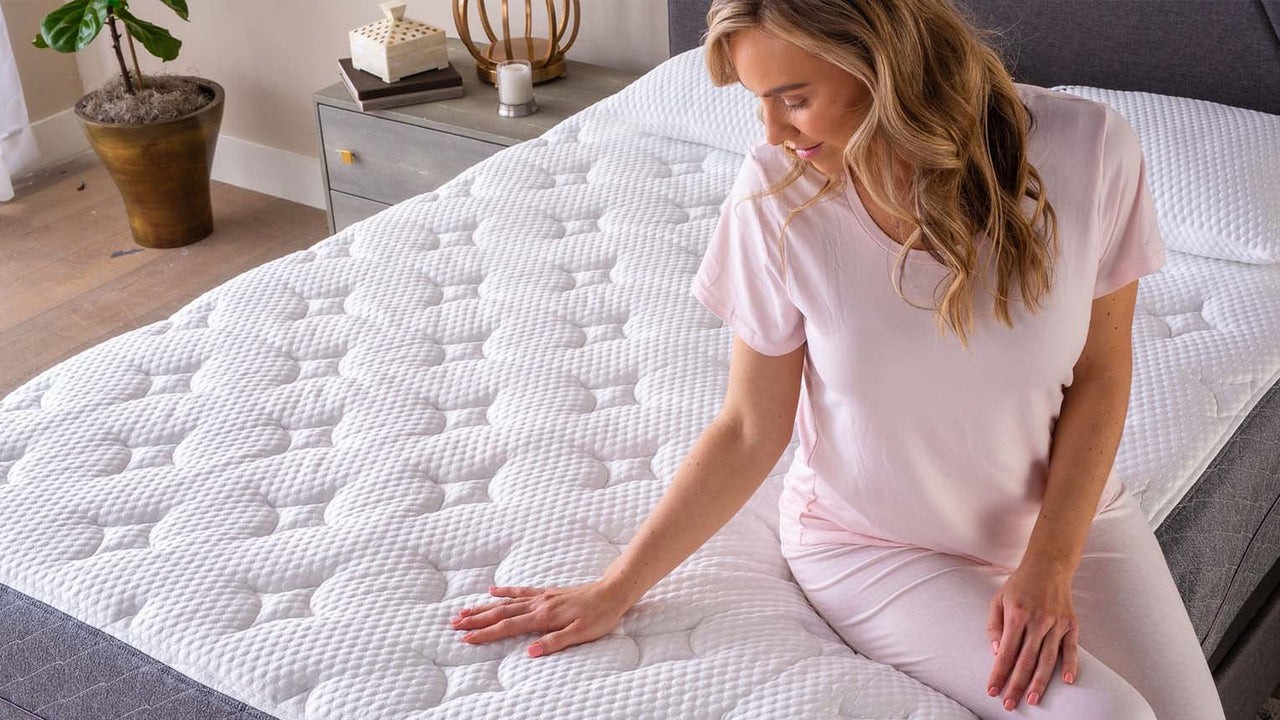
We recommend hot sleepers invest in one of this year's best cooling mattresses with specialized technology and materials to wick away moisture and keep you comfortable while you snooze.
Alternatively, our guide to our top-rated mattresses of 2025 includes many picks for a range of sleep styles and budgets that incorporate cooling materials.
Follow a calming nighttime routine
A well-established bedtime routine is important at any age. In fact, it's even more important when you hit menopause and notice an uptick in stress.
Your routine should be fine-tuned to what you find helps you manage anxious thoughts at the end of the day.
Practices like meditation, journaling, stretching or reading are all great options to help your mind and body relax.
Plus practising familiar, relaxing activities before bed helps your body recognise it's time to wind down.
Regulating your circadian rhythm in this way gives you the best chance of falling asleep fast and sleeping well through the night. Getting non-fragmented sleep will mean you spend ample time in deep sleep, helping you avoid nightmares.
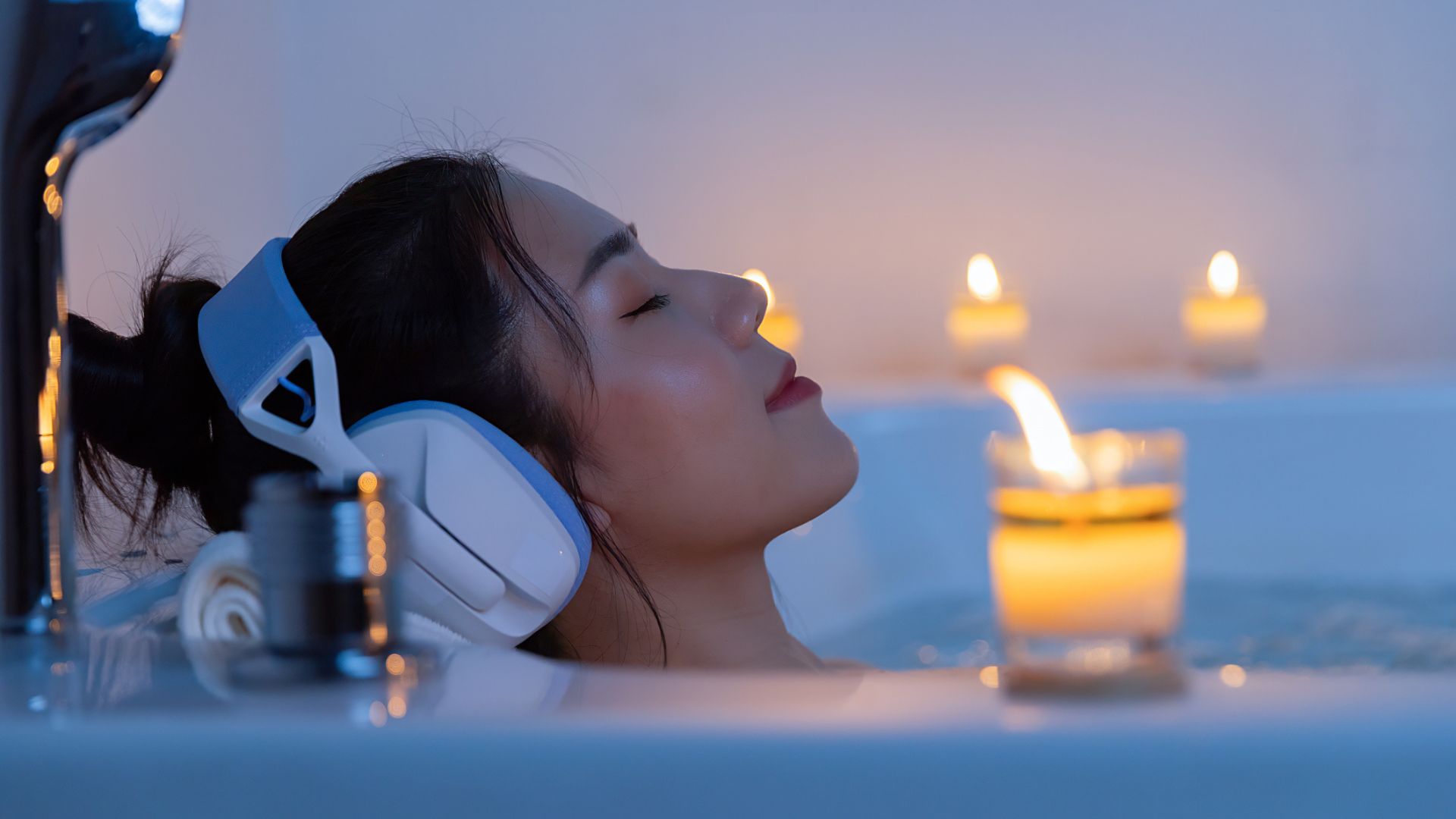
Avoid alcohol
Alcohol and sleep don't mix well. Alcohol can interfere with the natural flow of sleep cycles. Initially, you fall into a deep sleep quicker after booze, skipping through the REM stage (where you usually dream) during the first half of the night.
A study on the REM rebound effect published in the National Library of Medicine shows REM sleep increases in frequency and intensity later on, contributing to more intense, potentially disturbing dreams.
Therefore, limiting alcohol intake during perimenopause and menopause will help you get more restful, restorative sleep. Of course a glass of wine or two once in a while is okay, but binge drinking can have a more damaging effect.

Eve is a sleep tech product tester and writer at Tom's Guide, covering everything from smart beds and sleep trackers, to sleep earbuds and sunrise alarm clocks. Eve is a PPA-accredited journalist with an MA in Magazine Journalism, and has four years’ experience writing features and news. In her role as Sleep Tech Product Tester and Writer for Tom's Guide, Eve is constantly trying out and reviewing the latest sleep products from brands such as Apple, Garmin, Whoop, Hatch, Sleep Number, Eight Sleep, and Oura. A fitness enthusiast who completed the London Marathon earlier this year, Eve loves exploring the relationship between good sleep, overall health, and physical performance, and how great sleep tech can make that relationship even better.
You must confirm your public display name before commenting
Please logout and then login again, you will then be prompted to enter your display name.
 Club Benefits
Club Benefits










